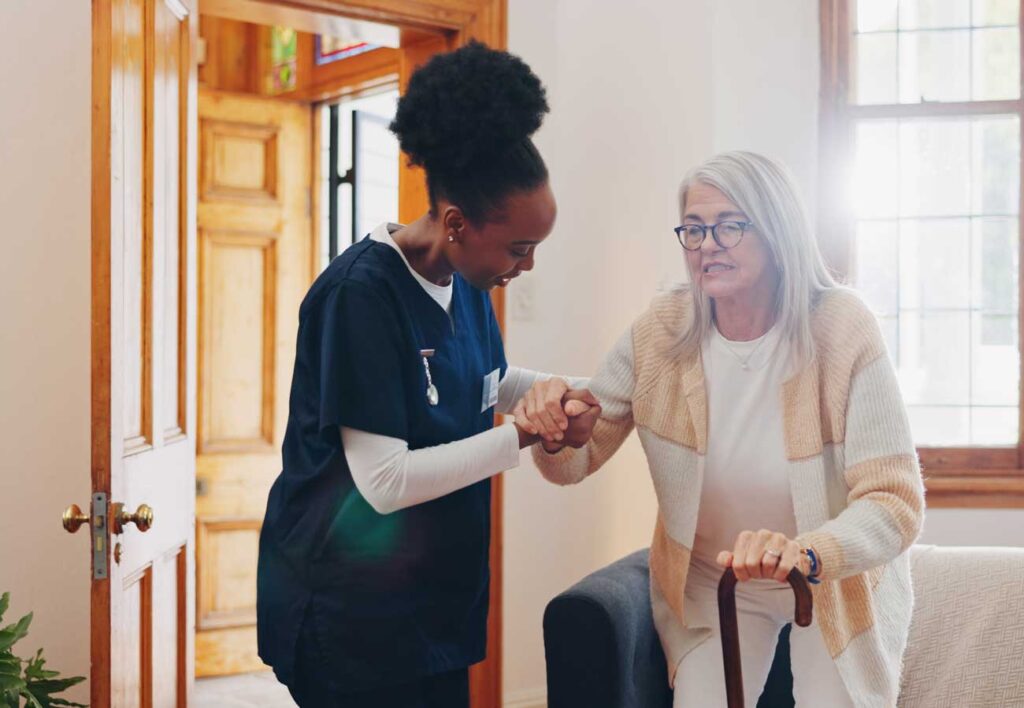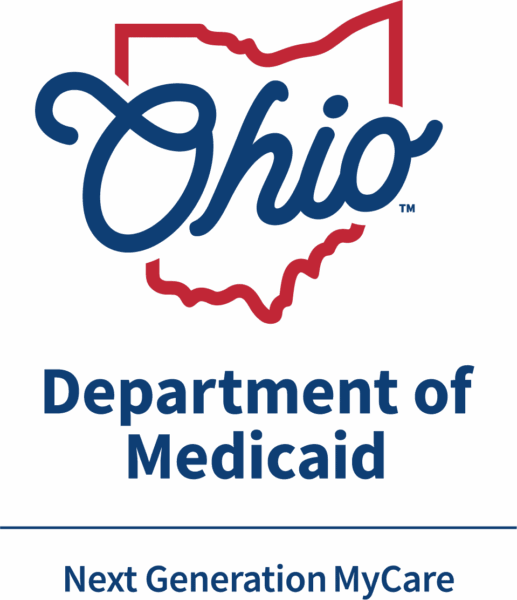Medicaid Waiver Programs
Medicaid is a state and federal program that provides healthcare coverage for low-income individuals and families. In Georgia, the EDWP (Elderly and Disabled Waiver Program) provides financial assistance and training support for caregivers. Under this program there are 2 waiver types offered that a participant can qualify for. Georgia offers a range of medical waiver programs designed to provide specialized support for individuals with disabilities, chronic illnesses, and the elderly, enabling them to receive care in their homes or communities instead of institutional settings. FreedomCare offers two waiver types: the CCSP (Community Care Services Program) and SOURCE (Service Options Using Resources in a Community Environment) waivers. These waiver programs, funded by Medicaid, include options like the Structured Family Caregiving (SFC) program. Waiver programs like CCSP, SOURCE and SFC not only empower individuals to live more independently but also support family caregivers by providing financial aid, training, and access to vital resources. By fostering a person-centered approach, Georgia’s medical waiver programs aim to enhance quality of life and reduce the burden of care for families across the state.
CCSP (Community Care Services Program)
At FreedomCare, we believe that families should have the support they need to care for their loved ones at home. That’s why we help eligible Georgians enroll in the Community Care Services Program (CCSP)—a Medicaid waiver designed to provide essential services to seniors and individuals with disabilities who need a nursing home level of care but prefer to remain at home.
Who Qualifies for CCSP?
To be eligible, individuals must meet Georgia Medicaid’s financial and functional criteria. This means they must:
- Require skilled nursing care or assistance with daily activities.
- Meet Medicaid’s income and asset limits for long-term care services.
- Complete an assessment with a case manager, who will help develop a personalized care plan.
How Family Caregivers Can Get Paid with CCSP
One of the most valuable benefits of CCSP is the ability for family members to receive compensation for providing care. If you are already caring for a loved one, FreedomCare can help you enroll, get approved, and start receiving payments for the care you provide.
What Services Does CCSP Cover?
The CCSP waiver includes a variety of supportive services, such as:
- Personal Care Assistance – Help with bathing, dressing, and mobility.
- Adult Day Health Services – Supervised care in a social setting.
- Home-Delivered Meals – Nutritious food delivered to the home.
- Emergency Response Systems – 24/7 monitoring for safety.
- Respite Care – Temporary relief for primary caregivers.
By allowing families to be compensated for their caregiving efforts, CCSP helps prevent unnecessary nursing home placements, keeping loved ones safe, comfortable, and cared for at home.

SOURCE (Service Options Using Resources in a Community Environment)
The Service Options Using Resources in a Community Environment (SOURCE) program is a Georgia Medicaid waiver designed to provide comprehensive care coordination and support for seniors and individuals with disabilities who meet the nursing home level of care requirement but wish to remain in their homes or community settings.
How SOURCE Works
Similar to the Community Care Services Program (CCSP), SOURCE provides essential services such as case management, adult day care, and respite care. However, SOURCE takes a more integrated approach to healthcare, with a strong focus on preventative health management. Participants are assigned a care coordinator who works closely with healthcare providers to ensure that medical and support services align with their specific needs. This holistic approach helps reduce hospitalizations, improve health outcomes, and enhance quality of life.
Who is Eligible for SOURCE?
To qualify for SOURCE, individuals must:
- Be enrolled in Georgia Medicaid
- Meet both financial and functional requirements
- Require a nursing home level of care but prefer to receive services at home
Get Paid as a Family Caregiver with SOURCE
SOURCE allows family members to serve as paid caregivers, provided they meet certain eligibility criteria. If you are already caring for a loved one, FreedomCare can guide you through the application process to ensure you receive compensation for the care you provide.
Services Available Through SOURCE
The SOURCE program includes a range of essential services, such as:
- Home health services
- Skilled nursing care
- Personal support services
- Home-delivered meals
- Emergency response systems
- Case management and care coordination
A Unique Approach to Healthcare and In-Home Support
One of the key advantages of SOURCE is its strong connection to primary healthcare providers. This ensures that participants receive ongoing medical supervision in addition to in-home support. By focusing on chronic condition management, preventative care, and early intervention, SOURCE helps reduce unnecessary hospital visits and provides individuals with the care they need to live safely at home.
Structured Family Caregiving (SFC) Program
The Structured Family Caregiving (SFC) program in Georgia is a vital initiative designed to support families caring for individuals with disabilities or chronic health conditions. Administered by the Department of Behavioral Health and Developmental Disabilities (DBHDD), the program offers financial assistance and a range of supportive services to ensure that care recipients can continue living in their homes and communities instead of transitioning to institutional settings. This program not only enhances the quality of life for individuals needing care but also empowers family members to take an active role in caregiving while receiving the resources they need to succeed.
This program allows the care recipient to select their care from a family member. The family member must live in the home with the care recipient and be related by blood or marriage- a spouse, legal guardian, and conservator are excluded from being the paid caregiver. The caregiver gets paid weekly to care for the waiver recipient through a daily stipend that is funded by GA Medicaid. The daily stipend amount is determined by the service provider. The SFC program promotes a collaborative relationship between the member, caregiver, Service Provider, and the member’s case manager.
Who Can Benefit from the SFC Program?
The SFC program is open to Georgia residents aged 18 or older who have documented intellectual or developmental disabilities or chronic health conditions requiring daily support and supervision. To qualify, participants must meet specific criteria, including Medicaid eligibility or enrollment in Medicaid Waiver programs such as the Comprehensive Supports Waiver Program (COMP) or the New Options Waiver Program (NOW). Additionally, care recipients must need assistance with activities of daily living (ADLs) and instrumental activities of daily living (IADLs) and be capable of living safely in a family home with the appropriate supports.
The Role of Caregivers in the SFC Program
One of the program’s most significant features is its emphasis on family caregivers. The SFC program allows a family member, other than a spouse or legal guardian, to serve as the primary caregiver. The caregiver must reside in the same household as the care recipient and be willing to undergo state-approved training to prepare for the role. This training ensures caregivers are equipped to provide safe and effective care, covering topics such as emergency preparedness, medication administration, and person-centered care.
Caregivers play a critical role in maintaining the care recipient’s independence and overall well-being. They assist with daily tasks such as bathing, dressing, meal preparation, and mobility, ensuring that their loved ones can remain in a familiar environment surrounded by family and community.
Steps to Apply for the SFC Program
Applying for the SFC program involves several key steps, starting with determining eligibility. Prospective participants should review the program’s criteria, including residency, Medicaid eligibility, and caregiving requirements. After confirming eligibility, families must contact their regional DBHDD office to begin the application process.
A comprehensive assessment will be conducted to evaluate the care recipient’s physical, emotional, social, and cognitive needs. Based on this assessment, an Individual Service Plan (ISP) is developed in collaboration with the care team, outlining the specific services and supports the participant will receive through the program.
Once a suitable caregiver is identified and completes the required training, the family can submit the application along with all necessary documentation to the DBHDD. After approval, participants and their caregivers can access the program’s financial assistance and tailored support services.
Why Choose the SFC Program?
The Structured Family Caregiving program in Georgia offers a unique opportunity for families to provide care in a loving, familiar environment while receiving the financial and training support necessary to succeed. By prioritizing community-based care and empowering caregivers, the program fosters independence and enhances the quality of life for individuals with disabilities and their families.
Emotional and Social Support Resources
Caregiving can take a significant emotional toll. Along with seeking financial compensation, it’s essential to tap into emotional and social support resources. Georgia’s Area Agencies on Aging offers caregiver support groups, respite care, and other helpful resources. Many online communities also provide emotional support for caregivers, helping to reduce feelings of isolation and burnout.
Conclusion
Becoming a paid caregiver for a family member in Georgia is possible through various programs and resources. Understanding the eligibility requirements and navigating the application process can seem daunting, but support is available to help you through it. By exploring options like Medicaid waiver programs, veterans’ benefits, long-term care insurance, and private pay arrangements, you can provide the best care for your loved one while receiving financial compensation for your time and effort.
At FreedomCare, we are here to support you on this journey. Reach out to us to learn more about your family caregiver benefits and compensation options in Georgia and how we can help guide you through the process. With the right resources, you can focus on providing quality care for your loved one while maintaining your financial stability.






